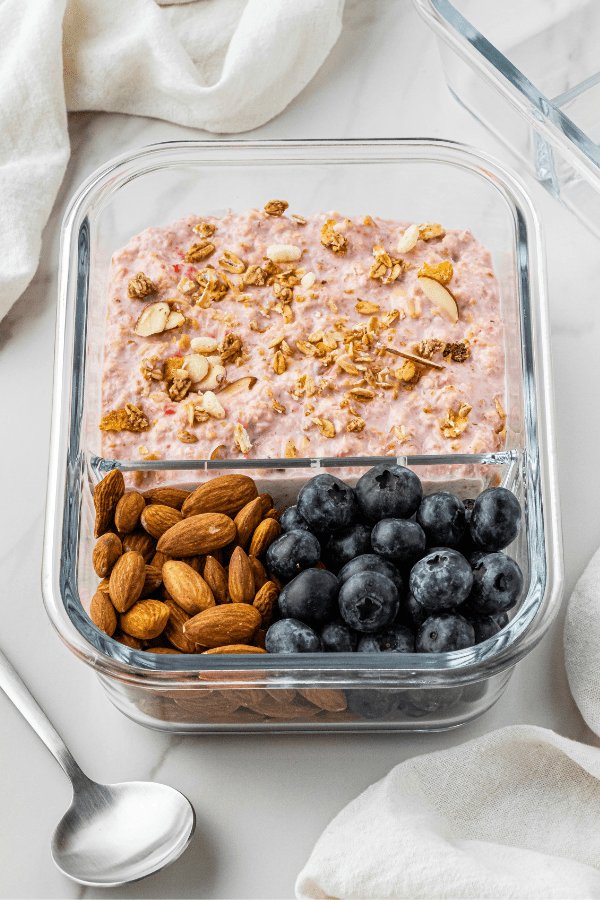
As a fellow healthcare worker, I know being a nurse means your days are filled with long 12-hour shifts, fast-paced work, and little time to focus on your own health.
It can be all too easy to prioritize the needs of others over your own, resulting in grabbing quick, unhealthy meals on the go or skipping meals altogether.
However, maintaining a healthy diet is crucial for sustaining energy levels, preventing burnout, and promoting overall well-being, especially during demanding long shifts.
In this comprehensive guide, we'll explore the best hacks for meal prep specifically designed for nurses! I’m providing practical tips and strategies to simplify your meal prep routine and ensure you have nutritious meals at your fingertips.
From batch cooking for efficiency to smart grocery shopping and quick meal prep ideas, I’ve got you covered.
So, let's dive in and empower you to take control of your diet and health.
*Disclaimer: The suggestions provided in this blog post are for informational purposes only and should not be considered as a substitute for professional medical advice, diagnosis, or treatment. Always consult with a qualified healthcare provider before making any significant changes to your health and wellness routines. I am not a doctor and the information presented is based on research and personal experience. Individual results may vary, and any actions taken based on the information in this blog post are done at your own risk. It's essential to consult a healthcare expert for personalized guidance tailored to your specific health needs and circumstances. Your health and well-being should always be a top priority, and professional medical guidance is crucial for making informed decisions about your health.
Meal Prep for Nurses:
Streamline Your Meal Prep with Batch Cooking for Efficiency
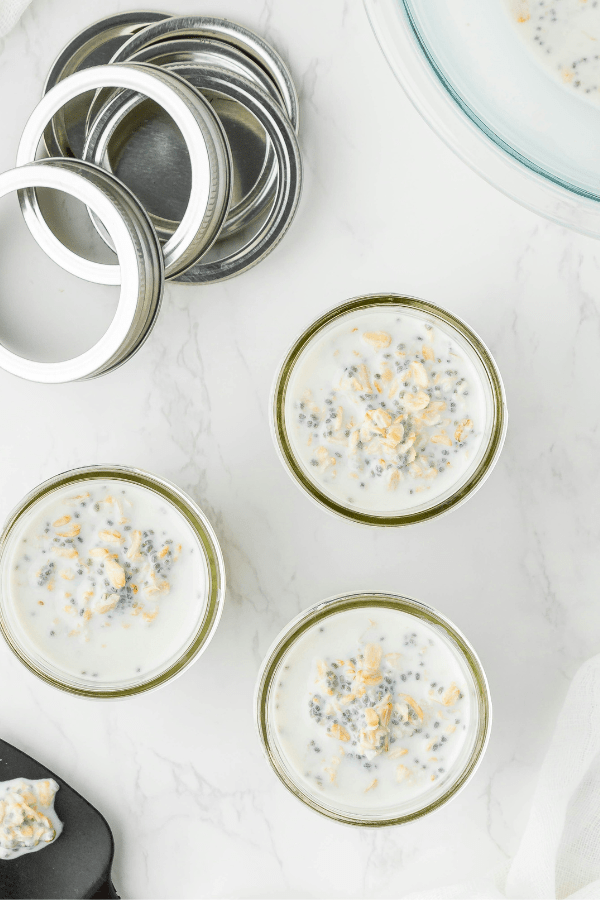
Batch cooking is a freaking lifesaver for busy nurses with a busy schedule.
Batching meals allow you to prepare large quantities of food in advance and store them for easy access throughout the week.
By dedicating a few hours to batch cooking on your day off or during a less hectic period, you can significantly reduce the time and effort spent on meal preparation during busy workdays.
Start by selecting a few staple recipes that you enjoy and that can be easily scaled up to feed you for several days. These could include hearty soups, stews, casseroles, or protein-packed grain bowls.
Invest in quality food storage containers to portion out your meals and ensure they stay fresh in the fridge or freezer. I recommend these airtight glass meal prep containers that are microwave, oven, freezer and dishwasher safe.
Batch cooking not only saves time but also helps you stick to a healthy diet by having nutritious meals readily available, even on the busiest of days.
Optimize Your Meal Prep with Smart Grocery Shopping

Successful meal prep starts with smart grocery shopping.
Before heading to the grocery store, take some time to plan out your meals for the week ahead. Consider your schedule, dietary preferences, and any ingredients you already have on hand.
Create a detailed shopping list to ensure you have everything you need for your planned meals, as well as healthy snacks and pantry staples.
When shopping, focus on filling your cart with fresh produce, lean proteins, whole grains, and healthy fats. Choose universal ingredients that can be used in multiple recipes to minimize waste and save money.
If you're short on time, consider using grocery delivery or pickup services to streamline the shopping process and avoid temptation while browsing the aisles.
Whip Up Quick and Nutritious Meal Prep Ideas in Minutes
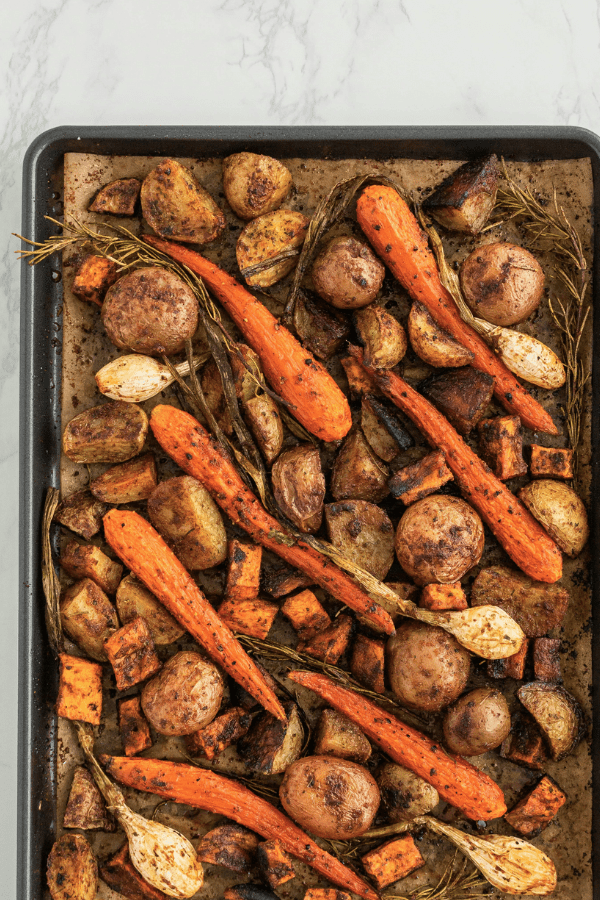
When it comes to meal prep, simplicity is key, especially for busy nurses with limited time to spare.
Here are some quick and nutritious meal prep ideas to inspire you:
1. Overnight Oats
Combine rolled oats with your choice of milk, yogurt, and toppings like fruit, nuts, or seeds in a jar or container.
Let it sit in the fridge overnight, and you'll have a delicious and satisfying breakfast ready to grab and go in the morning.
2. Mason Jar Salads
Layer your favorite salad ingredients in a mason jar, starting with dressing at the bottom and ending with leafy greens on top.
When you're ready to eat, simply shake the jar to distribute the dressing and enjoy a fresh and crunchy salad wherever you are.
3. Sheet Pan Meals
I LOVE sheet pan meals, theyre so easy! Roast a variety of vegetables and proteins on a sheet pan for a simple and flavorful meal that requires minimal cleanup.
*Game changing tip: Experiment with different seasonings and marinades to keep things interesting.
4. Protein Packed Snacks
Stock up on portable snacks like hard-boiled eggs, cheese sticks, Greek yogurt cups, or protein bars to keep you fueled and satisfied between meals. Pair them with fruit or veggies for a balanced and nutritious snack.
5. One Pot Wonders
Simplify your meal prep even further with one-pot meals like chili, stir fry, or buffalo chicken pasta. These hearty and satisfying dishes are easy to make in a big batch and can be customized to fit your taste preferences.
6. Slow Cooker Meals
Maximize your meal prep efficiency with the magic of a slow cooker.
Slow cookers, aka crockpots, are a staple for me and a life-changer for busy nurses. Slow cookers allow you to effortlessly cook nutritious meals with minimal hands-on time. One of my favorite slow cooker recipes is chicken fajitas! 🤤
Recommended post:
75 Super Simple Self Care Tips for Busy Women
Organize Your Meal Prep with the Best Meal Prep Containers
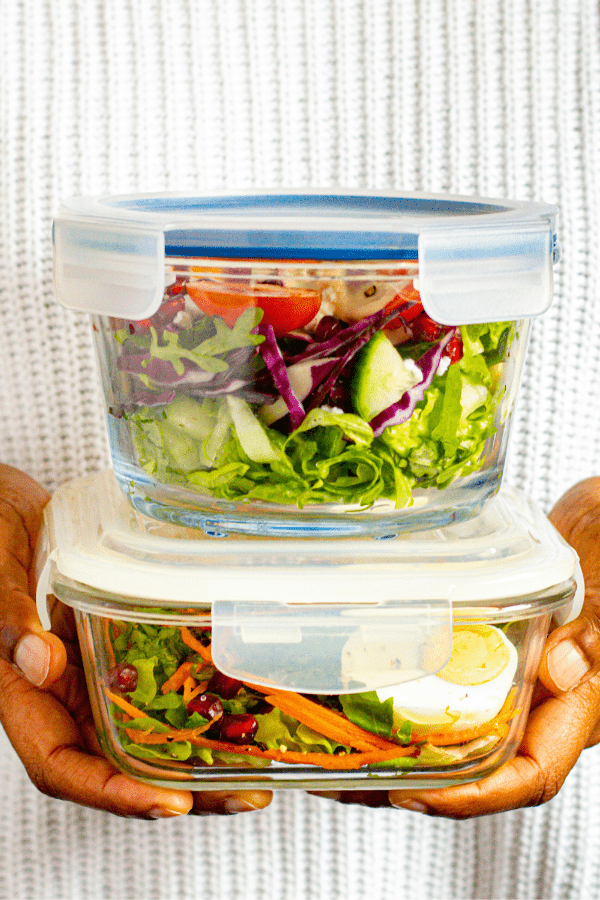
Investing in the right meal prep containers can make a world of difference in streamlining your meal prep process.
Here's why individual containers are a must-have for saving a lot of time and ensuring your meals stay fresh for the whole week:
1. Efficient Portioning:
Individual containers allow you to portion out your meals in advance, saving you the hassle of measuring and dividing food each day.
This is particularly helpful for busy nurses who need to grab and go during the work week.
2. Convenience for the Work Week:
Preparing meals in advance and storing them in individual containers is a great way to ensure you have healthy options readily available throughout the work week.
Whether you're on day or night shifts, having pre-portioned meals on hand can help you stay on track with your healthy meal prep goals.
3. Maximize Freshness:
By portioning your meals into individual containers, you can extend the freshness of your food for the entire week.
This means fewer trips to the grocery store and less food waste, ultimately saving you time and money.
4. Streamlined Meal Prep:
Planning and preparing meals for the entire week can feel overwhelming, but using individual containers can help simplify the process.
These are the best meal prep containers, everrrrr.
Spend some time on your day off portioning out meals for the whole week, and you'll thank yourself later when you have healthy options ready to grab and enjoy.
5. Versatility:
Individual containers come in various sizes and shapes, making them versatile for a range of meal prep needs.
Whether you're packing salads, soups, stir-fries, or grain bowls, there's a container size that's perfect for your healthy meal prep plans.
With the right meal prep containers, you can take the guesswork out of portion control.
Invest in high-quality containers that are microwave and dishwasher safe for added convenience, and say goodbye to the stress of meal prep.
You'll save time during the busy work week, and ensure your meals stay fresh and delicious for the entire week.
Fine-Tune Your Meal Prep for Night Shifts with Strategic Planning
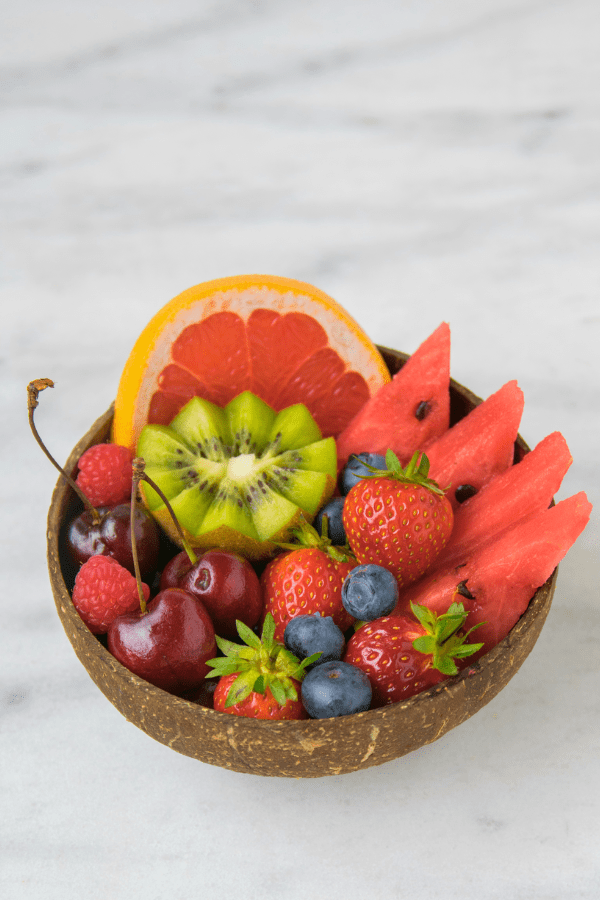
Meal prep is particularly important for nurses working night shifts, since it can be challenging to find healthy options during unconventional hours. I used to have to run to McDonald's at 3 am... I know, eeeeek. 🥴
Here are some tips for optimizing meal prep for night shifts:
1. Strategic Timing:
Plan your meals and snacks to coincide with your night shift schedule.
Aim to have a substantial meal before your shift starts to provide sustained energy. Throughout the night, focus on lighter snacks and mini-meals to avoid feeling overly full or sluggish.
Be mindful of when you eat larger meals to prevent discomfort during your shift.
2. Light and Digestible Options:
Choose foods that are easy to digest and won't weigh you down during your shift.
Opt for lean proteins like chicken, turkey, fish, tofu, or legumes paired with fiber-rich vegetables and whole grains.
Avoid heavy or greasy foods that may lead to indigestion or discomfort.
3. Hydration:
Staying hydrated is crucial, especially during long night shifts. Keep a water bottle with you and aim to sip water regularly throughout your shift.
Herbal teas, infused water, or electrolyte-enhanced beverages can also help keep you hydrated and alert.
Kaged Hydracharge is my favorite "go to" hydration drink mix! Like, literally. In my half gallon jug, DAILY.
 Kaged Electrolyte Hydration Powder - Pink Lemonade | Pre, Post, Intra Workout Supplement | 60 Servings
Kaged Electrolyte Hydration Powder - Pink Lemonade | Pre, Post, Intra Workout Supplement | 60 Servings
4. Snack Prep:
Prepare a variety of healthy snacks to keep you fueled during breaks or moments when you need a quick pick-me-up.
Consider options like fresh fruit, veggie sticks with hummus, yogurt cups, trail mix, or whole grain crackers with cheese.
Having these snacks on hand can help prevent the temptation to reach for less nutritious options.
5. Mindful Eating:
Take breaks during your shift to enjoy your meals and snacks mindfully.
Avoid eating at your workstation if possible (I know this is tempting) and find a quiet area where you can focus on your food.
Pay attention to hunger and fullness cues, and avoid eating out of boredom or stress.
By incorporating these strategies into your meal prep routine, you can ensure that you have the fuel you need to stay focused and energized during your night shifts.
Elevate Your Healthy Eating Habits Beyond Meal Prep with Mindful Choices
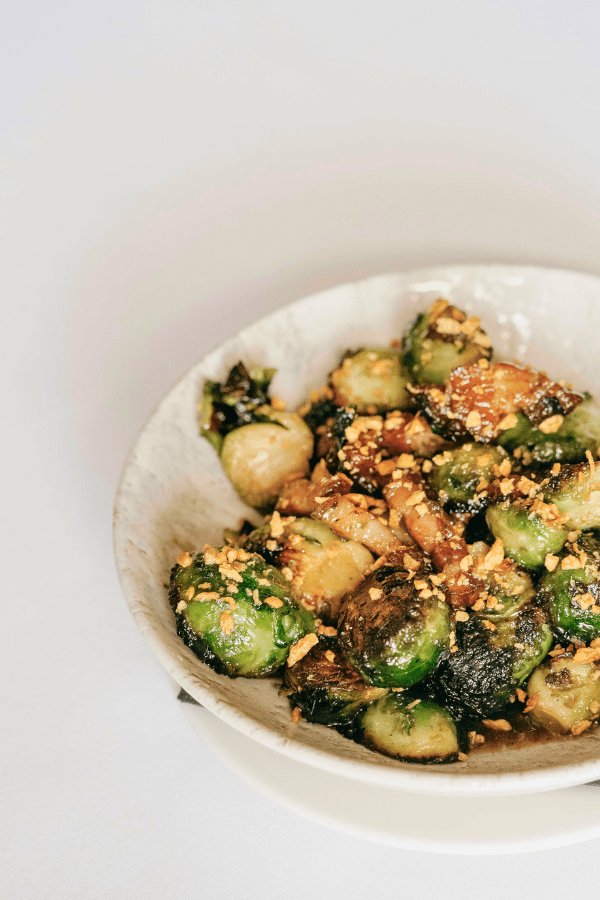
While meal prep is an excellent tool for supporting a healthy diet, it's essential to develop other healthy eating habits as well.
Here are some additional tips to compliment your meal prep efforts and promote overall well-being:
1. Fulfill a Balanced Diet:
Aim for a balanced diet that includes a variety of nutrient-dense foods from all food groups.
Incorporate plenty of fruits, vegetables, whole grains, lean proteins, and healthy fats into your meals to ensure you're getting essential nutrients.
2. Utilize Portion Control:
Pay attention to portion sizes to prevent overeating and maintain a healthy weight.
Use measuring cups, spoons, or visual cues to help you gauge appropriate portion sizes, especially for calorie-dense foods like nuts, seeds, and oils.
3. Regular Meals and Snacks:
Aim to eat regular meals and snacks throughout the day to maintain steady energy levels and prevent excessive hunger.
Skipping meals or going too long without eating can lead to overeating later on and may negatively impact your energy and mood.
4. Healthy Cooking Techniques:
Choose healthy cooking methods like grilling, baking, steaming, or sautéing instead of frying or deep-frying.
These methods help maintain the nutritional content of foods while minimizing added fats and calories.
By adopting these healthy eating habits in combination with your meal prep efforts, you can support your overall health and well-being both on and off the clock.
Recommended post:
Top 10 Tips for Beginners Strength Training
Frequently Asked Questions:
How do I make a meal plan for nursing?
To create a meal plan for nursing, consider your schedule and dietary preferences. Always aim for balanced meals with protein in mind first, carbs, veggies, and fats. Batch cooking and meal prep can save time. Focus on fresh ingredient recipes first and then factor in healthy store bought items.
What to pack for food as a nurse?
The best option is to pack portable, non-perishable foods like fruits, nuts, protein bars, and pre-cut veggies. Mason jar salads, sandwiches, and wraps are some amazing and convenient options. Make sure to use insulated containers to keep food fresh.
How to eat healthy working 12-hour shifts?
Number one, is making "healthy work meals" a mindset. Become dedicated to focusing on healthy meal choices and make sure you're prepared. Eat balanced meals with lean proteins, whole grains, fruits, and veggies. Pack nutrient-dense snacks like nuts and yogurt. Stay hydrated with water and take breaks to recharge.
How much should I eat on a 12-hour shift?
How much you should eat varies on your specific body requirements. I recommend using a macro calculator or calorie calculator. Then focus on eating smaller, frequent meals or snacks to sustain your energy levels. Listen to your body's hunger and fullness cues. Pack snacks and stay hydrated with water throughout the shift. Adjust portion sizes (within reason) based on how your body feels.
A quick recap of the benefits of meal prep for nurses:
- Batch Cooking for Efficiency: Prepare large quantities of food in advance to save time during busy workdays and ensure you have nutritious meals readily available throughout the week.
- Smart Grocery Shopping: Plan your meals ahead of time and create a detailed shopping list to streamline the grocery shopping process and avoid unnecessary trips to the store.
- Quick and Nutritious Meal Prep Ideas: Overnight oats, mason jar salads, sheet pan meals, protein-packed snacks, one-pot wonders, and slow cooker recipes offer convenient and delicious options for busy nurses.
- Meal Prep Containers: Invest in individual containers to efficiently portion out meals for the entire week, ensuring freshness and convenience during the work week.
- Optimizing Meal Prep for Night Shifts: Strategic timing, light and digestible options, hydration, snack prep, and mindful eating are essential for staying fueled and focused during night shifts.
- Healthy Eating Habits Beyond Meal Prep: Focus on a balanced diet, portion control, mindful eating, regular meals and snacks, and healthy cooking techniques to support overall well-being and long-term health.
In conclusion, meal prep is a valuable tool for nurses looking to maintain a healthy diet among busy schedules and demanding work environments.
By planning and preparing meals in advance, you can ensure you have nutritious options readily available, regardless of your shift length or timing.
From batch cooking, smart grocery shopping, quick and nutritious meal ideas, to optimizing meal prep for night shifts, there are many strategies you can use to simplify meal prep and prioritize your health.
Don't forget to incorporate these tips and strategies into your daily routine so you can fuel your body, sustain your energy levels, and ultimately provide the best possible care to your patients while taking care of yourself.
Learn to embrace the power of meal prep and nourish your body for success.
Thank you so much for reading this post. Please share with fellow nurses if you feel like it helped you! Don't hesitate to ask any questions or help each other out in the comments!
xoxo,








Leave a Reply